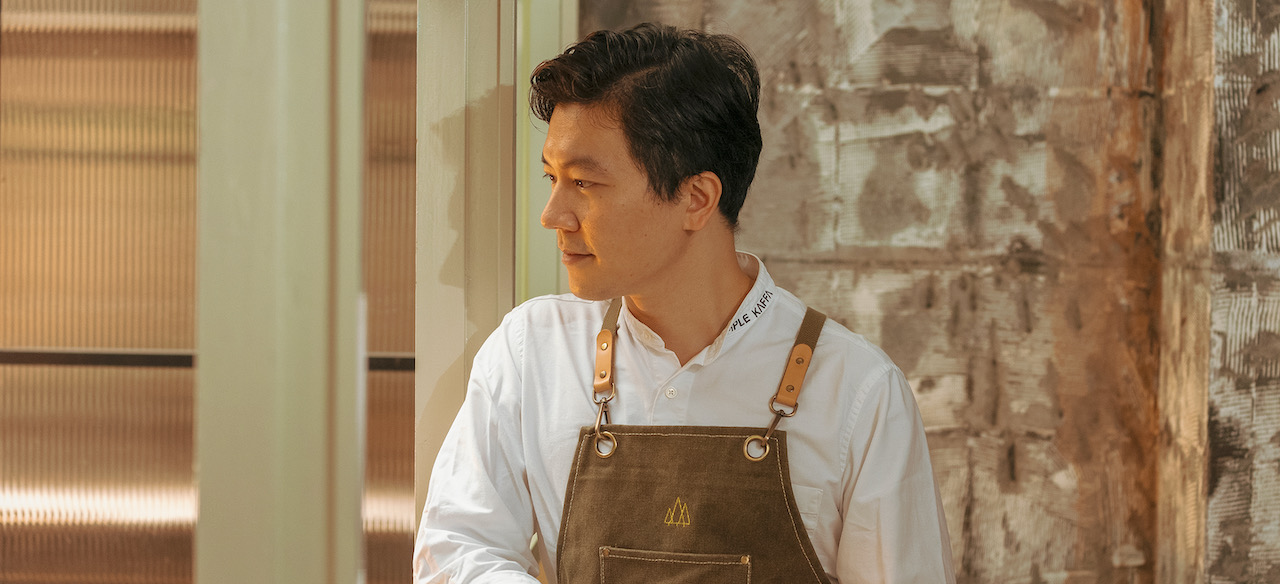
Simple Kaffa is a roastery and cafe which was established in 2011. It has grown to a staff of almost thirty in the past ten years. We interview the founder, Mr. Berg Wu, winner of the 2016 World Barista Championship, and his staff who also became barista champions in competitions in Taiwan.
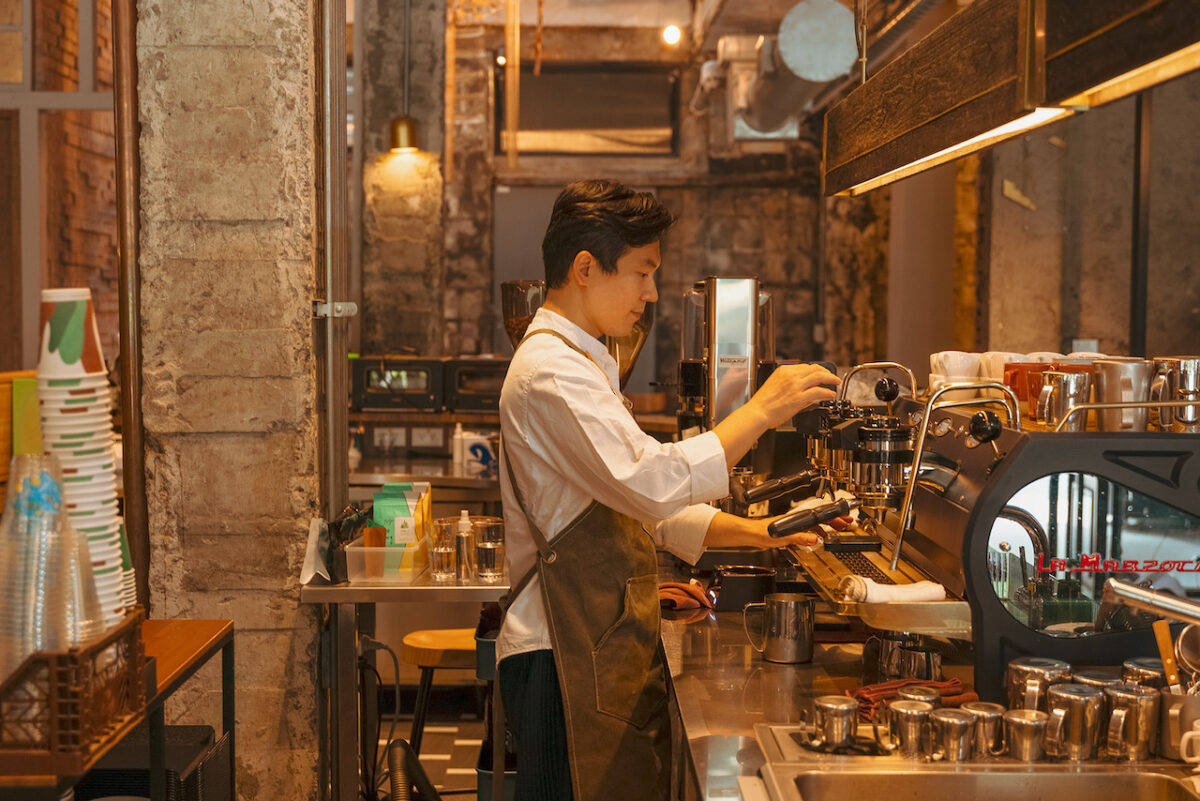
Impressed by The World Barista Championship
In 2008, while watching the World Barista Championship held in Denmark, a fire was lit in Berg’s heart who realized a pure love for coffee.
Berg states, “I was so excited to see all the barista champions and famous players whom I had only seen before online, who were competing in front of me. When they came on stage and started talking, I was so excited to see everyone gave a great performance. It was then that I realized that I wanted to compete with them as a barista and that I wanted to represent Taiwan in The World Barista Championship one day.”
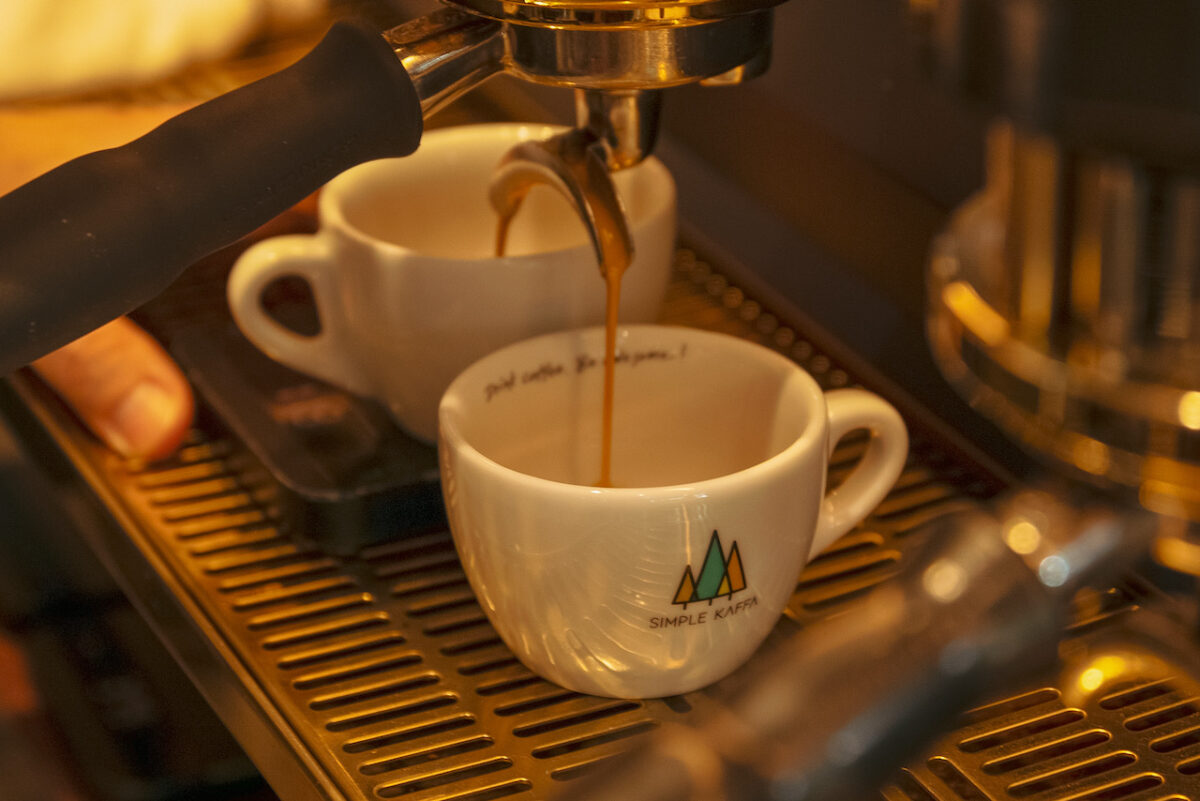
Driven by the desire, Berg began participating in the Taiwan Barista Championship the following year in 2009. However, his confidence in the quality of his coffee was shattered when he failed to qualify in both 2009 and 2010.
“What I remember the most is that I didn’t know what I was supposed to do when I stood on the stage at the competition. At the time when I had not yet opened my own store, I can only brew coffee at home with the equipment that I was familiar with, but on the competition stage, I was stressed about time and had to use coffee equipment that I had never used before. During the competition, I wasn’t even sure I was making espressos.”
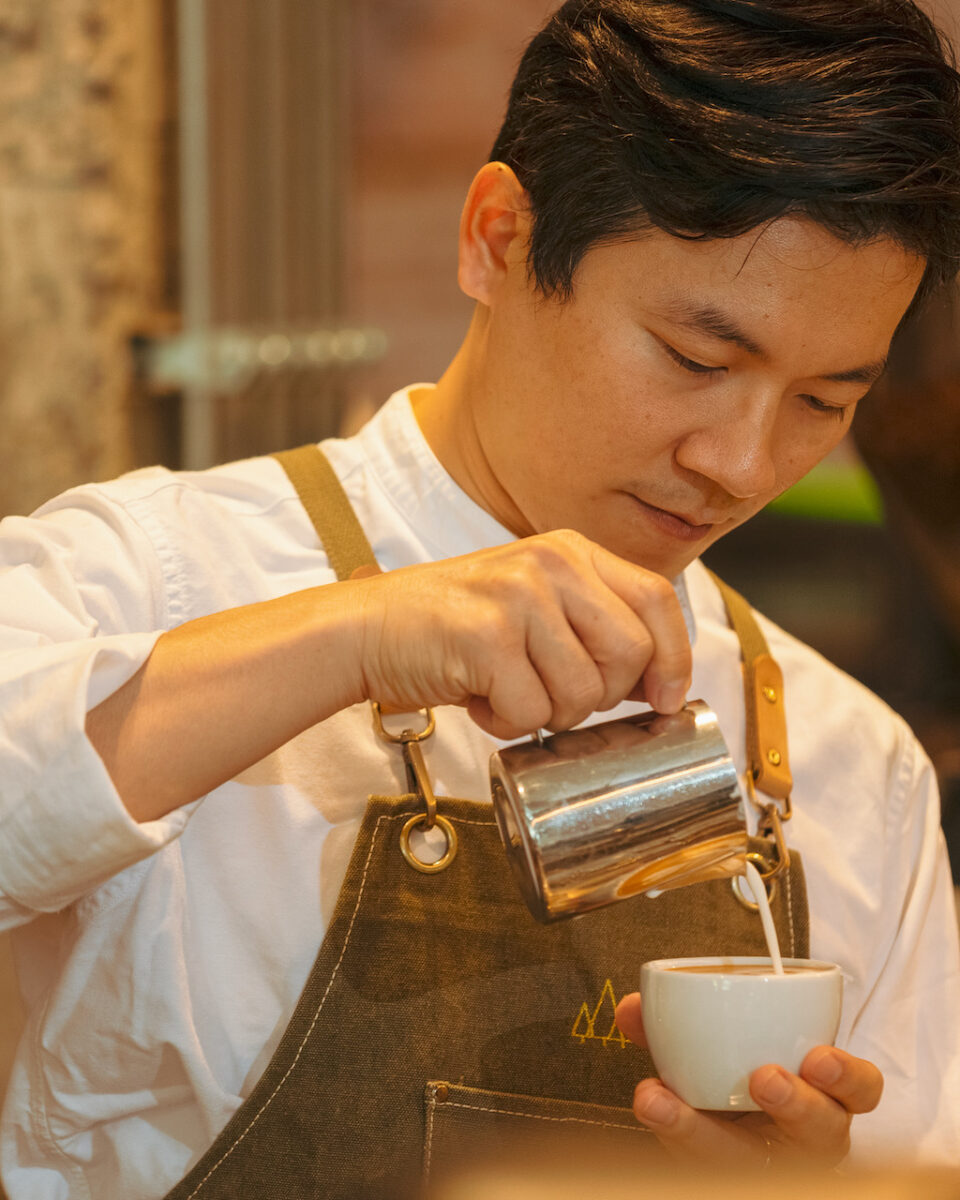
This failure led Berg to spend a lot of time trying to understand the criteria for winning the competition. He did this by continuously drinking highly rated coffees so that he could instill in his body the taste of the win.
With these efforts, he made it to the final of the Taiwan Barista Competition 2011 and finished in sixth place, which was his best ever result. However, his goal was to win the Taiwan Barista Championship and then participate in The World Barista Championship. To achieve even better results, Berg’s wife signed up to be a judge for the championship.
Berg states, “It was very important for me that my wife becoming a judge. When she went to the judges’ training, she learned that scoring in the competition is not based on personal preference, but on logical reasoning and criteria. This allowed us to systematically train people to hone their senses by verbalizing and visualizing their feedback on the taste of coffee.”
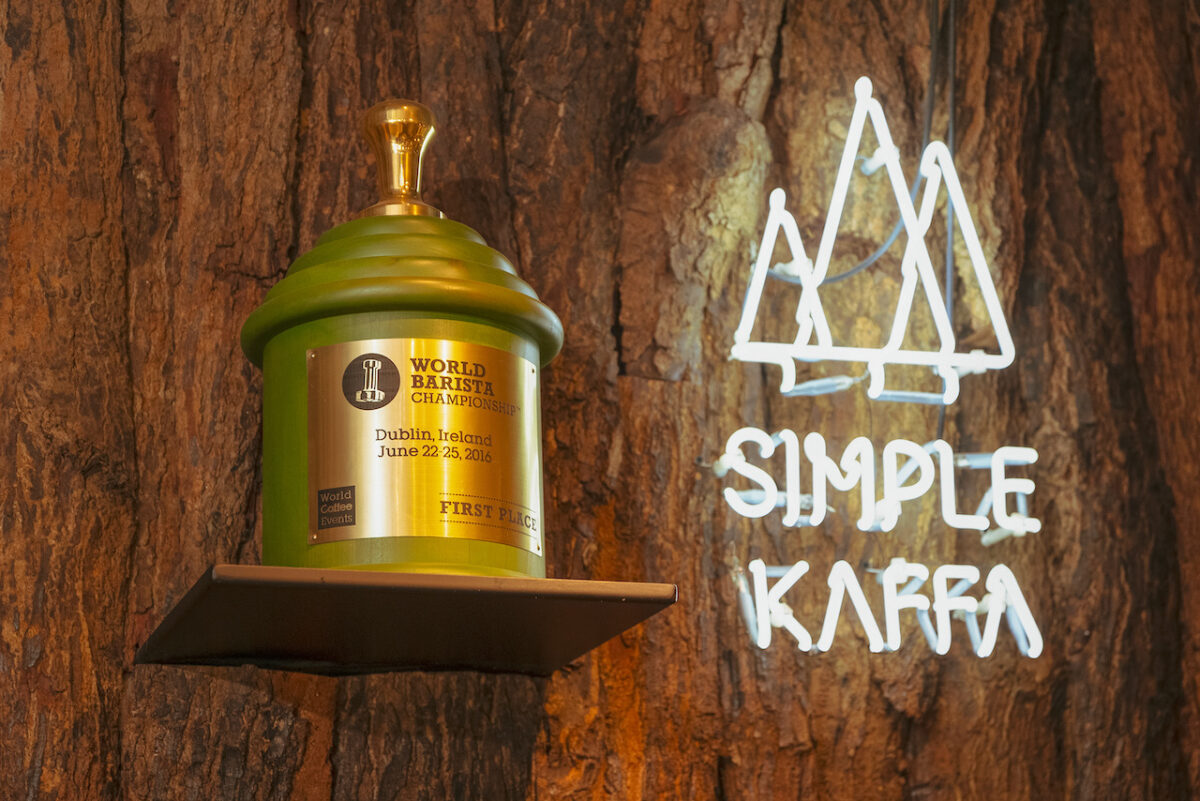
The strategy worked, and Berg took third place at the Taiwan Barista Championship in 2012 and won first place in three consecutive years from 2013 to 2015. In 2016, Berg became the first Taiwanese to win The World Barista Championship.
“In The World Barista Championship, on stage, it’s not just about the barista, but the workmanship of the entire team being evaluated. Looking back at the past winners of the World Barista Championship, every winning team showed the abilities to select green coffees, to set up the best corresponding roasting profiles, to build up a barista routine, and most importantly, to showcase the story of this specific coffee, or this specific industry to the judges’ panel.Every p person in the team plays an important role and makes the team stronger by cooperating with each other.”
“I believe that Simple Kaffa can become one of the leaders in the industry because all the people working here have a certain level of ability. I might own the personal title as a World Barista Champion, but I know teamwork is what really matters for a sustainable development; therefore, I have been working diligently and passionately in training baristas and roasters, to build up a solid team.”

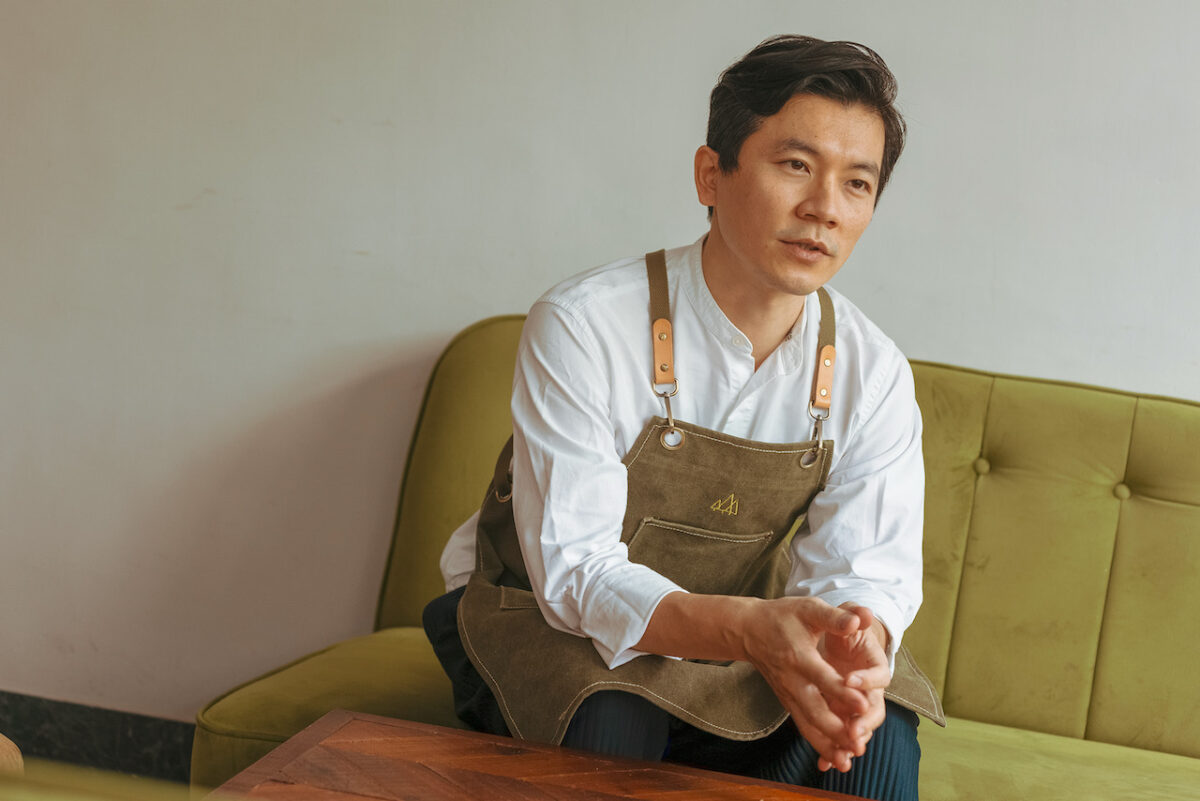
It all started with a handmade coffee tricycle
In 2000, Berg was a student and started brewing his coffee because he wanted to save money.
Berg states, “I used to buy cups of coffee in cafes but doing this every day can be a considerable expense. I wanted to be able to brew at home, and I couldn’t afford expensive equipment like an espresso machine, so I started brewing drip coffee using relatively affordable tools.”
Initially, the coffee he brewed didn’t taste good, but this piqued Berg’s interest. He thought over what went wrong in the taste and how he could make the taste better. As he became more and more aware of these issues, coffee became an essential part of his life.
Berg states, “I soon became bored with brewing coffee just for me to enjoy and I started to think I wanted more people to drink the coffee I brewed. I thought that I could improve my coffee by listening to the feedback from people who drank my coffee.”
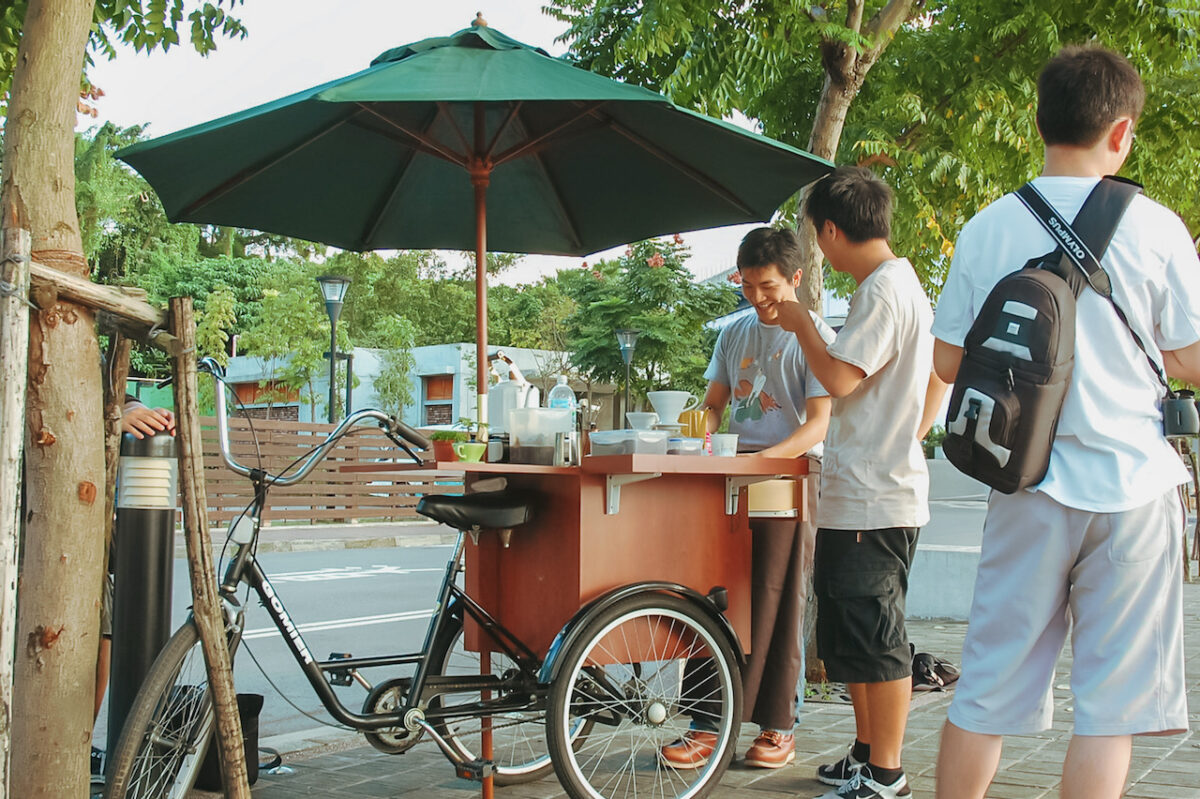
Berg then put his thoughts into action. He bought a tricycle with a basket like those usually used by people for going to the market to buy vegetables. He drew the blueprints and hired a carpenter to build a handmade coffee tricycle. He then started selling coffee on the street in the neighborhood parks on his days off and when he was not in classes for bachelor’s and master’s studies at university.
Berg states, “I didn’t really have a plan, but I had a clear vision that I wanted to open my own coffee shop eventually. But I was still trying to figure out if this was really what I wanted to do, so after I graduated from graduate school, I got a job as an engineer, which had nothing to do with coffee.”
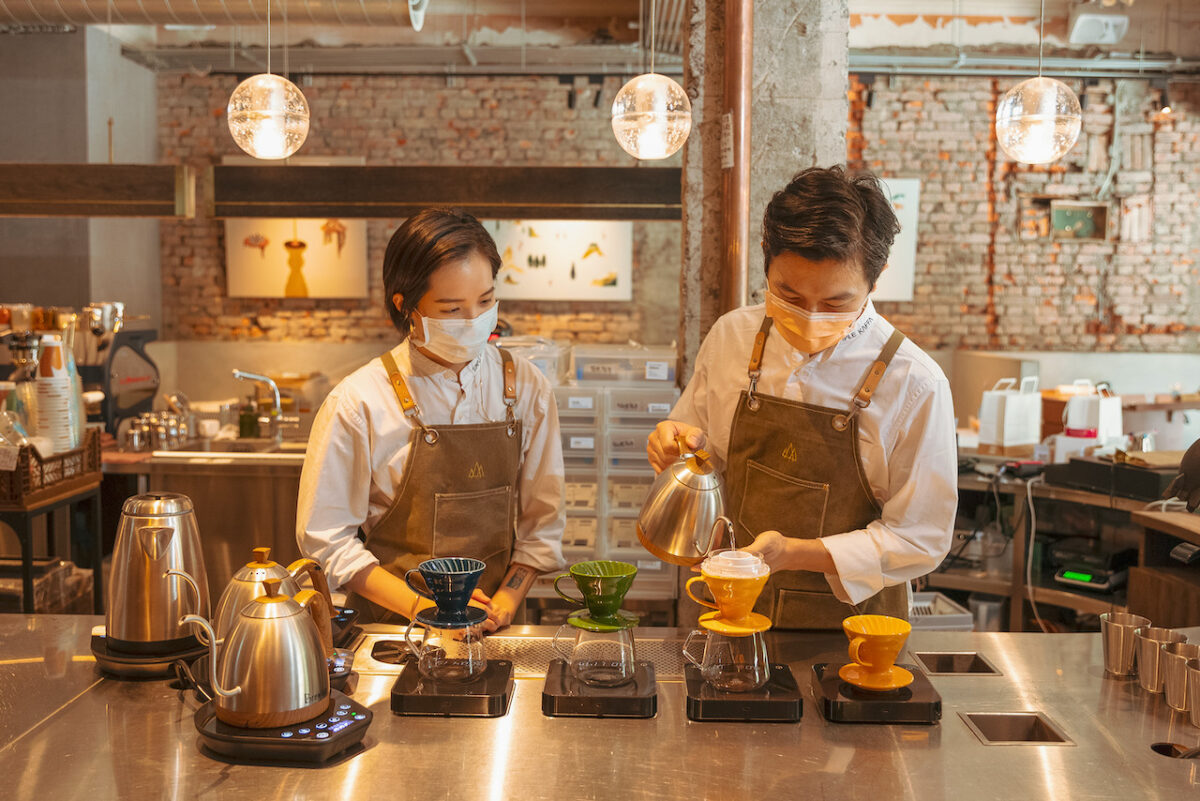
In 2011, three years after Berg started to participate in the Taiwan Barista Championship, when he was still selling coffee at his coffee tricycle while working as an engineer, Berg took the plunge and opened his own store. His friend had asked him, “I have a plan to open a cafe in a corner of a department store. I haven’t found a tenant yet; would you like to check it out?”
“When I was making coffee at home, I thought it was good, and my family all thought it was good, too. But when I started selling my coffee outside, customers would pay for it, so it was different from brewing it at home.”
“When those customers said things like, ‘It’s delicious,’ or ‘Your tricycle is really cool,’ I felt very happy, and I was able to experience a sense of accomplishment. I was very happy to feel a sense of accomplishment by doing what I love. That’s the main reason I opened the cafe.”

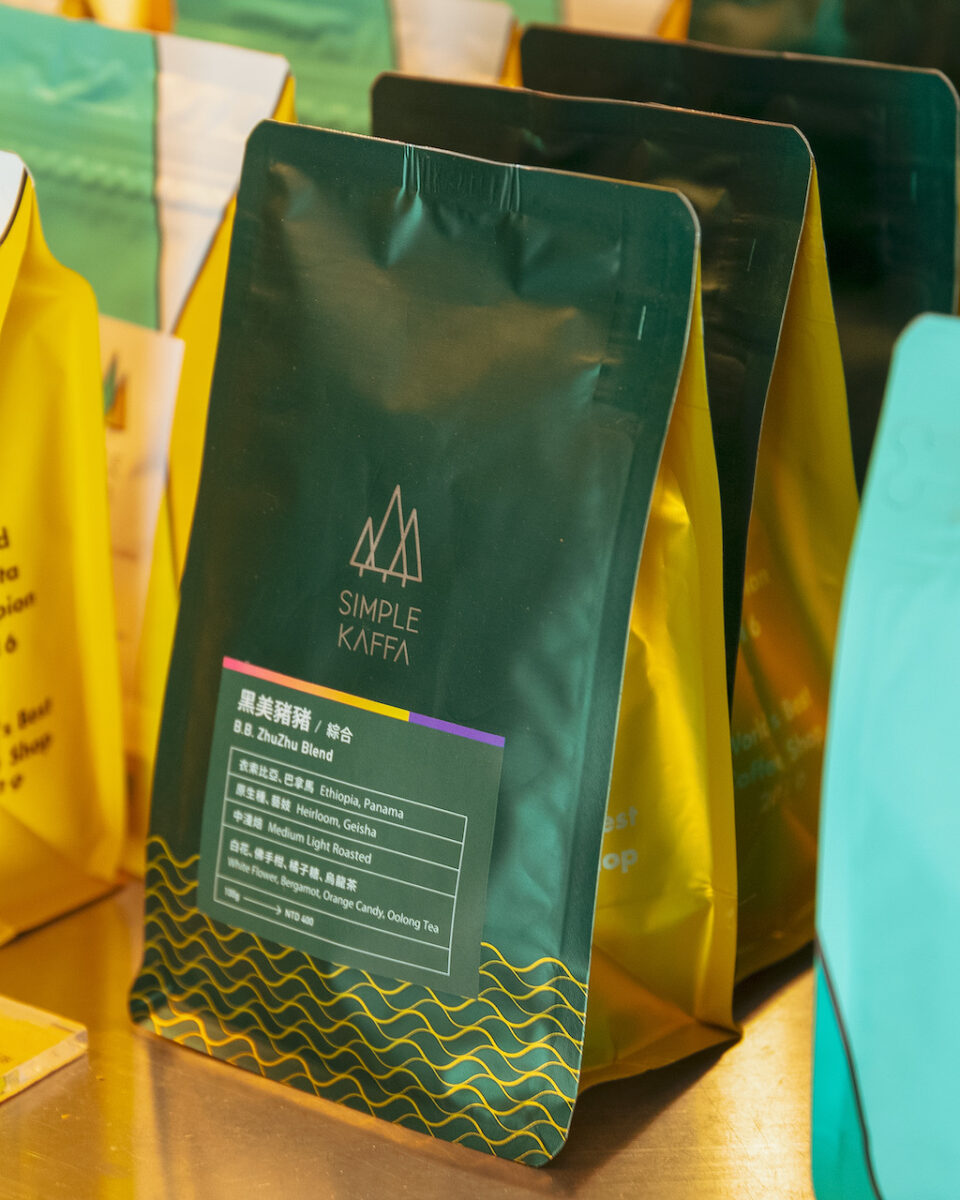
Setting new trend
Why did Berg, who has had such a successful career, choose the name “Simple Kaffa”?
“I’ve been doing a lot of research on how to brew coffee myself, and I think there’s a lot to understand. However, customers who want to drink coffee don’t need to know these things. They can just relax and have a good cup of coffee. While understanding all the intricacies of coffee yet offering it to customers in a simple form is what we want to convey through the brand name, Simple Kaffa.”
“Kaffa is the name of the Ethiopian forest where coffee is said to have originated, which shows the importance we place on the essence of coffee. Coffee is something to drink, and since drinking is an essential part of existence, it must taste good. We don’t do anything that would adversely affect the flavor profiles we want to achieve, but we are willing to try new things as long as we can still keep the quality high.”
One example of this is the introduction of a machine that sorts coffee beans by color in the post-roasting process. The machine takes pictures of all the coffee beans after roasting and automatically removes the ones that don’t match the preset color. By mechanizing this process, which is done manually by many roasters, they can produce high-quality coffee more efficiently. In a similar effort, the company has also introduced a machine that fills the packages of coffee for sale with nitrogen gas, to prevent oxidation, which causes deterioration of coffee’s quality.
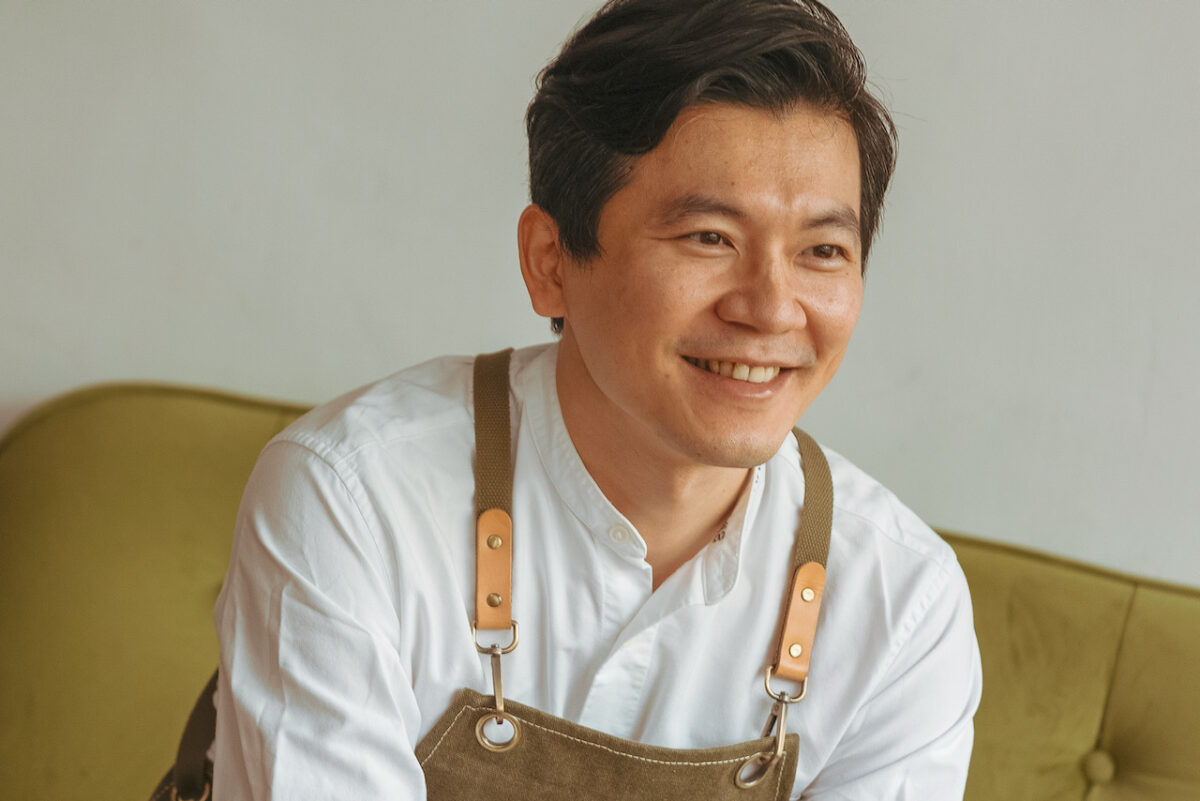
Berg states, “Our brand name is written as “Xìng Bō” in Chinese. It is derived from the Chinese characters for “Xìng,” which means “happy or to drive” and “Bō” which means “waves” and they are pronounced “Xìng Bō,” similar to “Simple” in English.
The Chinese word “Xìng Bō” literally means to trigger or to drive the new “waves” with our desires. We aim to make new trends in the specialty coffee industry and bring something new to the market that was never seen before. If we do great things, we believe that we can help elevate the level of the industry.”

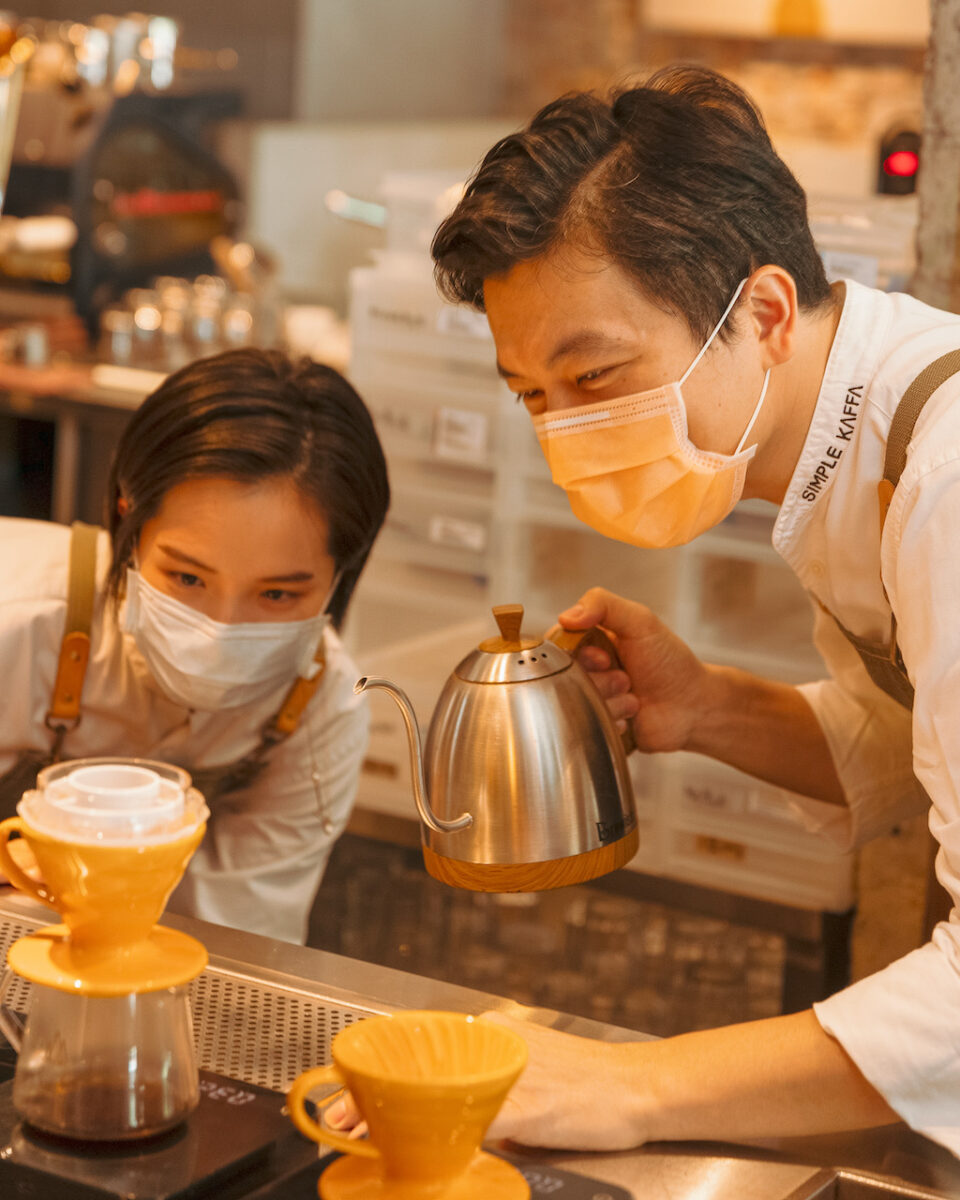
Building a strong team
At Simple Kaffa, which currently has a staff of about thirty people, Berg works behind the bar only from time to time in the store. This is because he has been building a strong team from early on.
Berg states, “All the knowledge and experience I have gained over the past twenty years, from brewing drip coffee and making espresso to polishing your senses and how to taste coffee, I teach everything in to new baristas within three months once I think he/she is being prepared. Because the sooner new staff acquires the knowledge and skills, the sooner they can be part of the team, grow with us, and gain new experiences.”
One of the baristas at Simple Kaffa, Zoe Lai, is a two-time barista champion at the Taiwan Barista Championship, who originally started out with no experience in the industry. Her result is proof that Berg’s company’s training system has been paying off.
Berg states, “After training her for about a year right after her graduation from university in 2014, we hired her to be a barista and ask her to be an assistant for the championship. I am the one who stood on stage at the Taiwan Barista Championship, but my assistant needed to understand the routine and content of the competition as much as I did. I think that her exposure to the high-level world of coffee deepened her understanding and helped her grow.”
“There is another barista in our team who took second place at the Taiwan Barista Championship, Sin Lin. And we also have Milly Hung, who has been in the final rounds for several times in the brewers’ cup. What I am always consciously thinking about is creating a team where each member can replace me and raise the level of the team as a whole. I think the reason we are able to maintain the flavor profiles of Simple Kaffa, even when I am away from the shop, is that the staff I’ve trained have become core members of the team and are involved in training the next generations of baristas.”
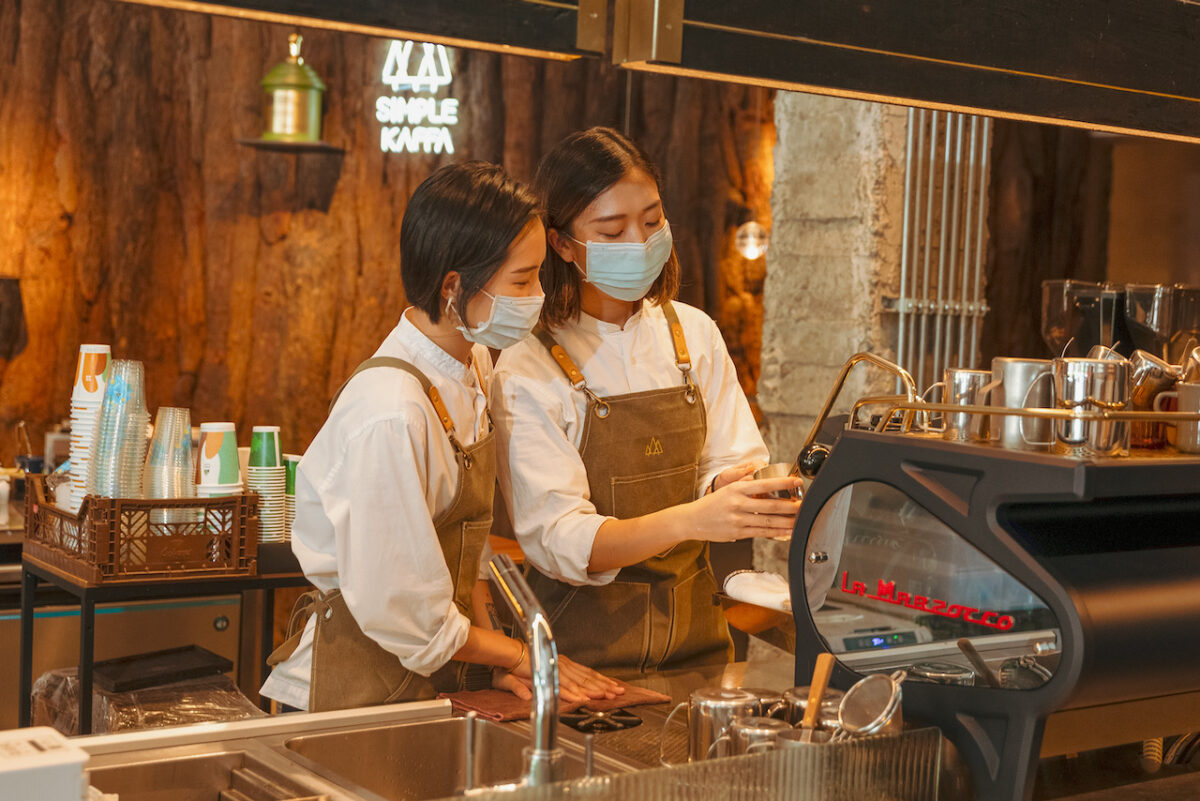
After three months of training by Berg, these new baristas are taken over by the more experienced baristas, who serve as trainers and mentors at Simple Kaffa, to be trained further.
Berg states, “By teaching others, I can test my own understanding, so I can learn more. By setting up such a system, I can use my time and effort for my own growth, and the team can continue to grow without a stop.”
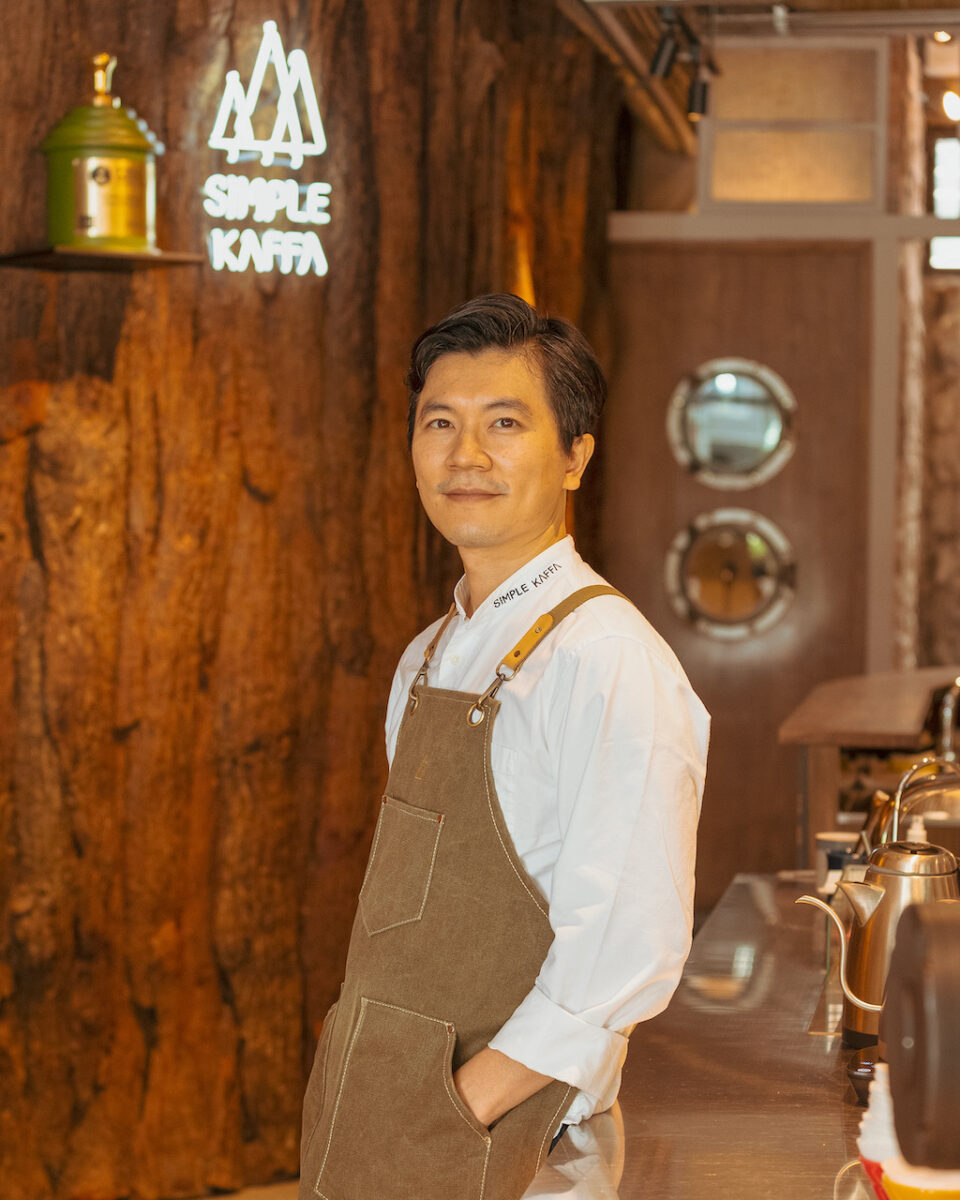
Ten years after the company was founded, Berg is opening a new frontier, beyond being only an owner of a roastery and cafe.
“We have been working on collaborative projects with other brands and pairing coffee with food at high-end restaurants. My role has changed a lot compared to when I used to make all the coffee myself before I opened the store.”
“I still feel like I want to make coffee every now and then, so I sometimes stand behind the bar in the store and serve coffee to customers, but my role has changed and so has the perspective I have. In the last couple of years, I gained more opportunities by working with people from other industries. I have been able to grow myself by being inspired from a different perspective than I had in the past.”
The “Simple Kaffa” brand logo depicts three trees of different sizes. Based on the common Chinese interpretation that “more than three equals to many,” the logo depicts a forest of many trees that reflects Berg’s will to grow himself gradually and create a big forest around him.
It’s been thirteen years since he found the vision he wanted to achieve while watching The World Barista Championship live. Even after climbing up the top of a mountain, Berg hasn’t stopped moving toward the top of another and new mountain. He will continue to create new “waves” in the Taiwanese coffee industry.
Originally written in Japanese by Tatsuya Nakamichi
MY FAVORITE COFFEE
“From the time I wake up in the morning until I go to bed at night, I drink coffee all the time. I don’t need to sit comfortably on a chair to enjoy a cup of coffee in a short time. Through enjoying coffee from many different angles, I am very happy when I find a good cup of coffee.”
